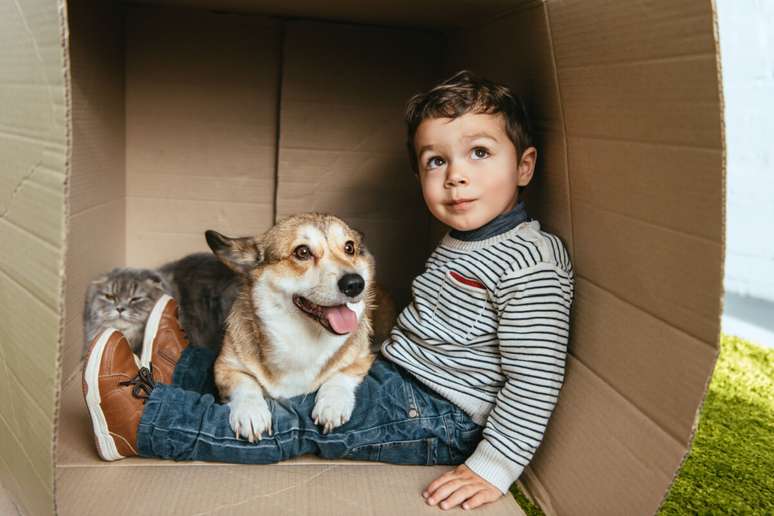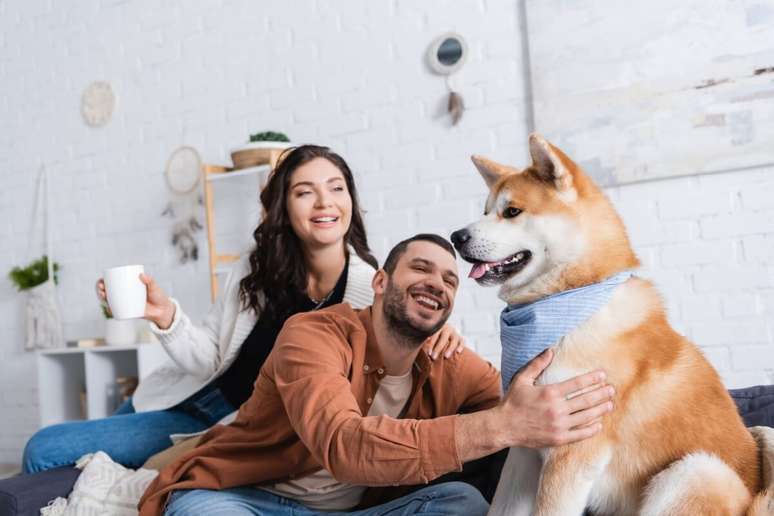Find out how to avoid accidents and promote harmonious coexistence between humans and dogs
Dogs are known as man’s best friend, providing companionship, loyalty and joy to families around the world. However, even the most docile animals can, under certain circumstances, be aggressive and attack someone.
“Aggressive behavior in dogs can be influenced by a number of factors, including genetics, environment, training and socialization. Any dog, regardless of breed, can exhibit aggressive behavior if not properly trained, socialized or if subjected to inadequate living conditions.” , underlines the animal behaviorist Wagner Brandão.
According to him, both large and small dogs have the potential to show aggression if they are not raised and treated with proper care. It is therefore essential to take preventive measures to ensure everyone’s safety. Below, check out 7 tips to prevent your dog from attacking people!
1. Socialization from puppyhood
Expose the your dog to different environments, people and animals from an early age. This is important because it helps develop social skills and reduces the likelihood of aggressive behavior in the future.
2. Obedience training
Invest in basic and advanced training to teach your pet commands. Additionally, reinforce desirable behaviors and correct behavioral problems with consistency and patience.
“The training is done not only to work on behavioral problems, but also to teach the dog how we humans would like him to behave in different situations,” says Camila Hermes, veterinarian and trainer.
3. Mental and physical stimulation
Provide activities that stimulate both the dog’s body and mind, such as walks, interactive games and intelligence games. This is because a mentally stimulated animal is less likely to develop unwanted behaviors, such as aggression.
“Animals need stimulation to avoid physical suffering, psychological trauma and behavioral syndromes,” emphasizes Wagner Brandão.

4. Constant supervision
Never leave your dog alone with unknown people, especially children. It is essential to maintain close surveillance to intervene if signs of discomfort or agitation are detected in the animal.
5. Respect personal space
Teaching people, especially children importance of respect the dog’s personal space. It also explains the importance of avoiding tight hugs, ear tugging, or any other interaction that could be interpreted as threatening by the animal.
6. Recognize the signs of stress
Learn to recognize the signs of stress in the dog, such as growling, drooping ears, staring or rigid posture. They indicate that the animal is uncomfortable and may react aggressively if provoked.
7. Seek professional help
If your dog is exhibiting aggressive behavior, seek help from a professional, such as a trainer or a veterinary behavioristto identify the causes and develop an appropriate intervention plan.
It is also important to highlight that, despite the need to prevent attacks, animals should not be mistreated as a form of control. Not only is violence unfair to dogs, but it can also increase the risk of aggressive behavior. It must also be recognized that not all dogs are prone to attacking people.
Source: Terra
Ben Stock is a lifestyle journalist and author at Gossipify. He writes about topics such as health, wellness, travel, food and home decor. He provides practical advice and inspiration to improve well-being, keeps readers up to date with latest lifestyle news and trends, known for his engaging writing style, in-depth analysis and unique perspectives.








